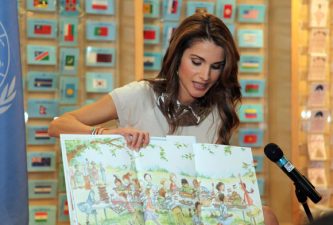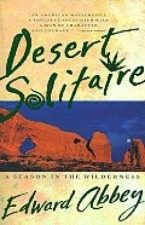Green Prophet is delighted to be teaming up today worldwide with Eco Libris, an environmentally friendly green printing company, and their Green Books campaign. Eco Libris is run by Israeli Raz Godelnik, and has been featured on Green Prophet here where we interviewed Raz.
The campaign plans 100 reviews of green themed books around the world on blogs and websites. Further information about the campaign and links to other reviews is via this campaign Green Books campaign link.
Now onto our review of Daniel Wildcat’s new book:
 “Hopefulness resides with the peoples who continue to find their identities emerge out of what I call a nature-culture nexus, a symbiotic relationship that recognises the fundamental connectedness and relatedness of human communities and societies to the natural environment….This Red Alert expresses a desire for urgent action based on respectful attentiveness. This Red Alert is about hope, not fear.”
“Hopefulness resides with the peoples who continue to find their identities emerge out of what I call a nature-culture nexus, a symbiotic relationship that recognises the fundamental connectedness and relatedness of human communities and societies to the natural environment….This Red Alert expresses a desire for urgent action based on respectful attentiveness. This Red Alert is about hope, not fear.”
Daniel Wildcat is a Native American scholar and activist. he is of the Yuchi and Muscogee tribes, and is currently the director of the American Indian studies programme and the Haskell Environmental Research studies centre at Haskell Indian Nations University in Lawrence, Kansas.
His new book, ‘Red Alert! Saving the Planet with Indigenous Knowledge’ is a powerful call both to action against climate change, but first to listening to and engaging with indigenous peoples.
He powerfully makes the case that indigenous or First Nation communities have suffered many times through appropriation of their land and resources, and it is this physical and cultural colonization that is largely responsible for the environmental crisis humankind has brought upon ourselves. His message is clear: human society needs to move out of the “ecological amnesia” as he calls it, which many of us have become so fascinated by, and listen to those who really have lived on and with the land closely.
Defining Indigenous peoples as “peoples or nations who take their tribal identities as members of the human species from the landscapes and seascapes that gave them their unique tribal cultures”, Wildcat is clear that he is not writing here for archeologists or anthropologists, but for those who genuinely believe that the way that most of us live has caused the change in climate, and yet the solutions to this do lie somewhere within human knowledge and experience.
Within chapters titled ‘The truth is not inconvenient – it is deadly,’ and ‘After progress: a reexamination of traditional technologies,’ Wildcat unveils some of the wisdom or truths that Indigenous peoples have. There is much discussion of the need for a meeting place between cultures to take responsibility, both for resource depletion and for past actions against Indigenous peoples, such as removal of children to ‘off reservation schools’.
“So the cold and the culture that it made: it gave us the characteristics of ingenuity, adaptability, belief and persistence. My clothing, my shelter, my food, and my technology were all engendered by the cold – and it is a very simple technology, and the technology that is best kept in the mind.”
– Angayuqaq Oscar Kawagley (Yupiaq) from a speech at the ‘Impact of Changing Environments on Indigenous Peoples’ symposium, 2006.
It is an uncovering and tangible acknowledgement of the problems that exist that Wildcat is, I think, striving for here, and though his focus in this book is on Native American tribes and land claims, most readers will have awareness of the existence of Indigenous peoples elsewhere, be they so-called travellers or gypsies in Ireland and England (where I’m writing this from), the Inuit in Canada and the North Western Territories, the Roma throughout Hungary and Europe, or the Bedouin of Israel’s Negev desert and the rest of the Arabian Peninsula.
I’m aware that a group of activists from the Beaver Lake Cree Nation is currently in the UK, touring and speaking where they can against the rapid expansion of tar sand developments that threaten their land in Alberta, Canada.
This is a new development in climate/indigenous activism, though it has been prompted by the threat of expulsion from the land, and witnessing the animals, fish, plants and medicine that share it being polluted and destroyed. A major UK bank has donated £80,000 to support this campaign, which is also a unique development. Lets hope this partnership brings some success.
“Indigenous knowledges, as the ancient traditions of many peoples around the planet remind us, reside in the land, in the life that constitutes the ecologies in which we participate, and dwells within the earth’s environments.”
This is an important, even urgent book. Wildcat communicates some of his message – and that of all Indigenous peoples clearly. Sometimes he nudges the reader toward something more mystical or metaphoric, for we know (and he guides us to know) that some of this knowledge is elusive and bound up within the elements of the landscape, in an ever present exchange between people and planet. Wildcat is an honoured guide to action.
To watch a short video of author Daniel R. Wildcat speaking, click here on Wildcat video (it also includes further information about this book).
His book, ‘Red Alert! Saving the Planet with Indigenous Knowledge’ is published by Fulcrum Publishing, USA (www.fulcrumbooks.com) and it is printed in Canada on recycled paper, hence its being included in Eco libris Green Books Campaign.
Many thanks to Erin Palmiter at Fulcrum for the book, Susan Newman for the Green Books Campaign logo (above), and of course to our friend Raz Godelnik, CEO of Eco Libris. Support the campaign and buy these truly green books! There are 100 books being reviewed today on 100 websites and blogs.
This is truly the future of literacy, reading, and green information technology!





great anilg – share these reviews around. and do send us the link to honey bee.a coda to this review is the 24th april 2009 Anchorage Declaration, written by representatives of Indigenous peoples from all around the world. The opening paragraph reads:”we express our solidarity as Indigenous Peoples living in areas that are the most vulnerable to the impacts and root causes of climate change. We reaffirm the unbreakable and sacred connection between land, air, water, oceans, forests, sea ice, plants, animals and our human communities as the material and spiritual basis for our existence.”The Declaration continues with 14 points as an action plan for communication and co-operation between States (i.e Governments and non-Indigenous Communities) and Indigenous Peoples representatives.These include the abandoning of “false solutions to climate change”, which include nuclear energy, large-scale dams, geo-engineering techniques, clean coal, agro-fuels, plantations, and market-based mechanisms such as carbon trading, the Clean Development Mechanism, and forest offsets.The full written agreement is available online at:http://www.indigenoussummit.com/servlet/content/declar...responses welcome!
great anilg – share these reviews around. and do send us the link to honey bee.a coda to this review is the 24th april 2009 Anchorage Declaration, written by representatives of Indigenous peoples from all around the world. The opening paragraph reads:”we express our solidarity as Indigenous Peoples living in areas that are the most vulnerable to the impacts and root causes of climate change. We reaffirm the unbreakable and sacred connection between land, air, water, oceans, forests, sea ice, plants, animals and our human communities as the material and spiritual basis for our existence.”The Declaration continues with 14 points as an action plan for communication and co-operation between States (i.e Governments and non-Indigenous Communities) and Indigenous Peoples representatives.These include the abandoning of “false solutions to climate change”, which include nuclear energy, large-scale dams, geo-engineering techniques, clean coal, agro-fuels, plantations, and market-based mechanisms such as carbon trading, the Clean Development Mechanism, and forest offsets.The full written agreement is available online at:http://www.indigenoussummit.com/servlet/content/declar...responses welcome!
great anilg – share these reviews around. and do send us the link to honey bee.a coda to this review is the 24th april 2009 Anchorage Declaration, written by representatives of Indigenous peoples from all around the world. The opening paragraph reads:”we express our solidarity as Indigenous Peoples living in areas that are the most vulnerable to the impacts and root causes of climate change. We reaffirm the unbreakable and sacred connection between land, air, water, oceans, forests, sea ice, plants, animals and our human communities as the material and spiritual basis for our existence.”The Declaration continues with 14 points as an action plan for communication and co-operation between States (i.e Governments and non-Indigenous Communities) and Indigenous Peoples representatives.These include the abandoning of “false solutions to climate change”, which include nuclear energy, large-scale dams, geo-engineering techniques, clean coal, agro-fuels, plantations, and market-based mechanisms such as carbon trading, the Clean Development Mechanism, and forest offsets.The full written agreement is available online at:http://www.indigenoussummit.com/servlet/content/declar...responses welcome!
great anilg – share these reviews around. and do send us the link to honey bee.a coda to this review is the 24th april 2009 Anchorage Declaration, written by representatives of Indigenous peoples from all around the world. The opening paragraph reads:”we express our solidarity as Indigenous Peoples living in areas that are the most vulnerable to the impacts and root causes of climate change. We reaffirm the unbreakable and sacred connection between land, air, water, oceans, forests, sea ice, plants, animals and our human communities as the material and spiritual basis for our existence.”The Declaration continues with 14 points as an action plan for communication and co-operation between States (i.e Governments and non-Indigenous Communities) and Indigenous Peoples representatives.These include the abandoning of “false solutions to climate change”, which include nuclear energy, large-scale dams, geo-engineering techniques, clean coal, agro-fuels, plantations, and market-based mechanisms such as carbon trading, the Clean Development Mechanism, and forest offsets.The full written agreement is available online at:http://www.indigenoussummit.com/servlet/content/declar...responses welcome!
we will be happy to review this book in honey bee, a twenty year old voice of creative people and indigenous communities
great anilg – share these reviews around. and do send us the link to honey bee.a coda to this review is the 24th april 2009 Anchorage Declaration, written by representatives of Indigenous peoples from all around the world. The opening paragraph reads:”we express our solidarity as Indigenous Peoples living in areas that are the most vulnerable to the impacts and root causes of climate change. We reaffirm the unbreakable and sacred connection between land, air, water, oceans, forests, sea ice, plants, animals and our human communities as the material and spiritual basis for our existence.”The Declaration continues with 14 points as an action plan for communication and co-operation between States (i.e Governments and non-Indigenous Communities) and Indigenous Peoples representatives.These include the abandoning of “false solutions to climate change”, which include nuclear energy, large-scale dams, geo-engineering techniques, clean coal, agro-fuels, plantations, and market-based mechanisms such as carbon trading, the Clean Development Mechanism, and forest offsets.The full written agreement is available online at:http://www.indigenoussummit.com/servlet/content/declar...responses welcome!
great anilg – share these reviews around. and do send us the link to honey bee.a coda to this review is the 24th april 2009 Anchorage Declaration, written by representatives of Indigenous peoples from all around the world. The opening paragraph reads:”we express our solidarity as Indigenous Peoples living in areas that are the most vulnerable to the impacts and root causes of climate change. We reaffirm the unbreakable and sacred connection between land, air, water, oceans, forests, sea ice, plants, animals and our human communities as the material and spiritual basis for our existence.”The Declaration continues with 14 points as an action plan for communication and co-operation between States (i.e Governments and non-Indigenous Communities) and Indigenous Peoples representatives.These include the abandoning of “false solutions to climate change”, which include nuclear energy, large-scale dams, geo-engineering techniques, clean coal, agro-fuels, plantations, and market-based mechanisms such as carbon trading, the Clean Development Mechanism, and forest offsets.The full written agreement is available online at:http://www.indigenoussummit.com/servlet/content/declar...responses welcome!
we will be happy to review this book in honey bee, a twenty year old voice of creative people and indigenous communities